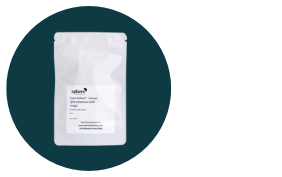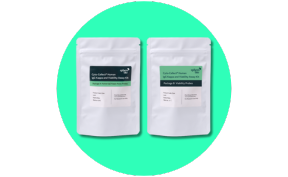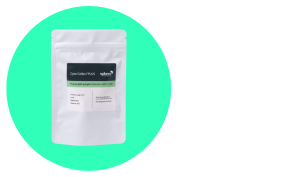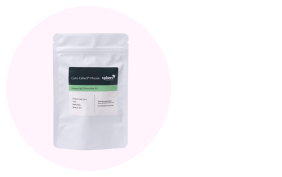Interview with Jess Hall, Field Application Scientist

Over many years, we’ve built a world-class support and service team including cell biologists, applications specialists, chemists, physicists, and engineers to help our customers on their path to discovery and development. Whether they need applications or technical support, instrument services, or refresher training for existing and new users, our team is here to help.
We sat down with Jess, one of our Field Application Scientists to learn more about her experience in the industry and discuss her role within the Technical Support team. Before joining Sphere Bio in 2022, Jess worked as an Analytical and Molecular Scientist at an oncology diagnostics company. She has a BSc in Biology from the University of Sheffield, specializing in molecular bioscience.
In her free time, Jess likes travelling, hiking and getting out into nature. Jess also loves loose leaf tea and getting creative – her perfect evening would be a tea and crafts night!
What does your role involve and what are your responsibilities?
Within field applications at Sphere Bio, our team is divided into pre-sales and post-sales. My role is focused on post-sales field applications of our Cyto-Mine® platform; therefore, I provide technical support and training to existing customers rather than focusing on prospective customers.
I play a key role during installation of the Cyto-Mine® platform where I train end users to use the instrument, which often involves a presentation to outline the key steps and some more hands on machine learning. Then, I provide ongoing customer support; whether they have any concerns, or if I can assist with implementing any novel applications or new workflows at our customer sites.
How did your professional journey lead to this role and to working at Sphere Bio?
Following my academic studies in biology, I started working for an oncology diagnostics company. With the rise of COVID, like many labs, we took on COVID testing and saw our headcount rise from about 20 to several hundred lab staff in around the space of a year. This massive growth came with the implementation of many laboratory robots and biotech instruments, which is how I first gained experience working with these kinds of machines.
As a lab supervisor, I oversaw a lot of the validation and integration of these instruments, and I worked very closely with people with similar roles to my current one, field application scientists and specialists from many other companies. Their roles interested me because they have the opportunity to travel and work collaboratively with lots of different people within their own company, but also within other companies, and are able to maintain a connection to science through a mixture of lab and non-lab work.
At the close of the pandemic, I decided to look for a job within this area of biotech field applications and that’s when I found the role at Sphere Bio. I’d previously heard about the company from past colleagues, some of whom worked here at the time, and upon seeing the instrument and meeting the employees, I accepted the position.
What really caught my attention was the enthusiasm everyone brings to their work. During my interview visit, I could see the care and commitment being put into everyone’s work. The new office setup at the Granta Park site is also incredibly impressive, sealing the deal for me.
What real-world challenges are researchers facing?
Traditional processes for antibody discovery and cell line development are time consuming and inefficient, and often very difficult to upscale. Cyto-Mine® overcomes many of these challenges by providing automated cost effective, high throughput screening which is gentle on the cells, and it also reduces contamination risks by incorporating single-use consumables.
A standard run for the Cyto-Mine® takes around six hours, which makes it very manageable to perform within a working day. The majority of the workflow is hands-off, so it enables users to perform other processes while it is running. Without the Cyto-Mine®, it often takes months to perform something that our platform can achieve within one day.
There are available instruments that accelerate different stages of biopharmaceutical workflows, but the Cyto-Mine® combines a lot of these functionalities into one platform, allowing users to do a lot with one instrument that can alternatively be done by many separate machines. Therefore, our customers are saving on both money and space.
We’ve also had situations where customers are struggling to make assays work on their own instruments. For example, this might be due to the stress that these instruments exert on the cells or the length of time it takes to process them, and sometimes it’s just not feasible or worth the time, cost and use of resources. As the Cyto-Mine® is high throughput and exerts minimal stress on the cells, it can be particularly beneficial in these scenarios, and has enabled customers to develop novel assays and workflows.
How do you work collaboratively with customers to get the best from their work?
We invest a lot of time into planning how we can provide excellent service; by listening, understanding and assessing a customer’s questions and challenges before we get going.
We’ve had a number of new hires recently, including myself. There’s a great mix of new and existing expertise. Combined, we’re really pushing to provide the best support that we can to our customers. We’ve been working on incorporating a new ticket handling software, which we spent a lot of time developing and tailoring to ours and our customers’ needs.
One of the most important parts of being a part of the Application and Technical Support Team, is making sure that there’s always someone on hand for on-the-fly troubleshooting. Especially within research workflows, a lot of the time when our customers need assistance, it’s needed immediately or at short notice, so it’s important that our team is agile. Sometimes, we stay on hand to watch a customer’s instrument runs, to help and guide how to move them forward should any issues or questions arise.
As part of my role, I often travel to help with customer training, whether a customer feels like they have like a gap in their knowledge or they just want some refresher training, which we’ve found to be a service they really appreciate.
What exciting new research areas are being explored with Sphere Bio’s technology?
The assay development and applications department are focusing a lot on assay development this year, so a lot of time and effort has gone into validating and researching new assays to support more types of molecules, cells, and different processes. They’re also pushing to widen the scope of assays that we have validated ourselves, that we can then provide to customers.
As part of our ongoing product R&D, we’re also looking to improve the Cyto-Mine® platform, to improve the functionality of existing parts – I find these updates really interesting as they pair my interest in biology with software and hardware engineering.
Additionally, I’ve been working with our marketing team to conduct customer interviews to obtain feedback from our existing customers on their experience with the instrument and maybe some trends that they’ve been seeing and what they would like us to implement in future system updates. This has been very constructive, allowing real-world customer feedback to be put into use within our R&D department.
How can customers get in touch with the Application and Technical Support team to discuss their existing workflows, or thoughts around adapting a workflow for a new application?
Our e-mail address: support@spherebio.com, automatically raises a ticket within our ticketing system and is monitored by our team.
We also have an office number for the phones at the desks of our entire department, so if a customer calls during working hours, there will always be someone on hand to speak to. Our customers often reach out to us individually, for example, if they want to speak to someone that’s helped them previously. We’ll then internally raise the ticket on the customer’s behalf to make it easier for them.
To find out more about our Application and Technical Support Team, please visit: spherebio.com/support-service
About Sphere Bio:
Sphere Bio develops and manufactures single cell analysis and monoclonality assurance systems to enable researchers to find, analyze and isolate the most valuable cells, with ease and speed.
Sphere Bio’ proprietary picodroplet microfluidic platforms are designed specifically for single-cell screening and isolation, allowing users to encapsulate and analyze single cells within a picodroplet, while maintaining viability. Harnessing this technology, the Company’s range of novel microfluidic tools facilitate leading-edge research and accelerate biotherapeutic discovery and development, cell therapy, and synthetic biology workflows, streamlining the journey of discovery in labs, globally.
Sphere Bio is based at Granta Park in Cambridgeshire (UK). The Company has also internationalized its business via a global network of distributors.




